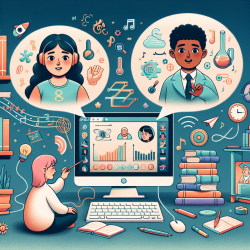The journey of creating and implementing an Individual Education Plan (IEP) for students with learning disabilities can be a daunting task for parents, students, and educators. The process involves multiple stakeholders, each bringing their perspectives and expertise to the table. However, despite its complexities, the IEP process can be navigated successfully with careful planning and collaboration. This blog explores three major challenges within the IEP process: parental involvement, student involvement, and setting quality goals, offering strategies to overcome these hurdles.
Understanding Parental Involvement
Parental involvement is a critical component of the IEP process. However, many parents find IEP meetings intimidating and confusing. This often stems from an emotional response to their child's diagnosis of a learning disability. Educators can facilitate better involvement by recognizing these emotions and fostering an environment of open communication.
The Kubler-Ross grief model offers insight into the stages parents might experience: denial, anger, bargaining, depression, and acceptance. By understanding these stages, educators can better support parents throughout the IEP process. Creating a welcoming atmosphere in meetings and avoiding professional jargon can make parents feel more comfortable and valued as part of the team.
Encouraging Student Involvement
Students are central to the IEP process but are often left out of discussions that significantly impact their education. Incorporating student-centered learning approaches can empower students to take an active role in their education. This means involving them in discussions about their needs and preferences from an early age.
Research has shown that students often lack understanding of their IEPs. Educators should ensure that students are not only present at meetings but also actively participating. Asking for their input on goals and accommodations helps them feel ownership over their learning journey.
Setting Quality Goals
An effective IEP is grounded in well-defined goals that are measurable and functional. Unfortunately, many IEPs fall short in this area due to vague or non-specific targets. Training for educators on how to write quality IEP goals can make a significant difference.
Goals should be clear about what is expected of the student and how progress will be measured. For example, instead of stating "improve reading," a goal could specify "achieve 15/20 on sight word recognition assessments." Professional development opportunities focusing on writing measurable goals can enhance the effectiveness of IEPs.
Conclusion
The IEP process presents challenges that require collaboration and understanding among all team members—parents, students, educators, and administrators alike. By acknowledging emotional responses, fostering open communication, involving students actively, and setting specific goals, the IEP process can become more effective and less intimidating for everyone involved.
Ultimately, with thoughtful planning and execution by educators like those at TinyEYE who provide online therapy services to schools, students with learning disabilities can embark on a successful educational journey.
For more information on overcoming challenges within the IEP process, please follow this link.










